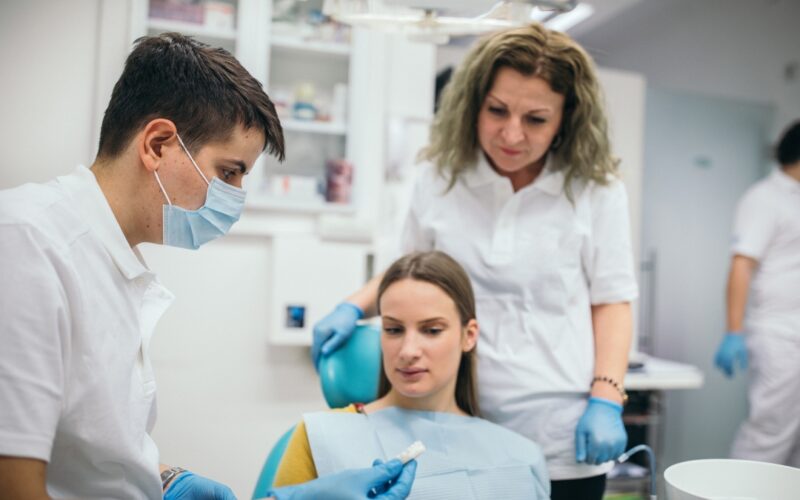
Congratulations on welcoming a new puppy to the family! Puppies are adorable, feisty little creatures that can make any house come alive with joy, laughter and smiles. But owning a puppy comes with its set of responsibilities. For one, a puppy is entirely dependent upon you for its nutrition, health and wellbeing, and the care it gets in the first few months of its life will shape its behaviour in adulthood.
One way of ensuring your puppy enjoys a healthy, fulfilling life is to keep up with their mandatory vaccinations. The last thing you’d want is for your new puppy to fall seriously ill due to a disease that could have been easily prevented with a vaccine. If you live in or near Brunswick, book your puppy’s first vaccination appointment Vets on Call today.
What are dog vaccinations and how do they work?
Just like in humans, vaccines stimulate the pet’s immune system, so that the body learns to recognise it as a threat. Once the body knows this, it can fight the disease if the animal contracts the disease in the future. Some vaccines require annual boosting, while others can last for many years.
Not only do dog vaccinations protect your dog from the virus, but they also ensure your puppy doesn’t infect other dogs if it is a carrier of a virus. Many boarding kennels, dog training classes and doggy daycares require your dog to have an up-to-date vaccination history to be enrolled into their system. This is especially necessary now that restrictions are easing and more people are planning to travel over the Christmas break or head back to work soon.
When to vaccinate
When and what to vaccinate can differ depending on a few factors such as a pet’s age, medical history, lifestyle and environment. In general, all pets need an annual vaccination but there are some diseases that require just one jab every 1 to 3 years. Each pet is unique!
For instance, cats who spend any time exploring the outdoors should be protected against Feline Immunodeficiency Virus (Non-Core), but indoor cats won’t need this.
It’s important to discuss your pet’s individual needs with your vet, so that your pet is always appropriately protected. Sound daunting? It’s really not, at-home Brunswick vets can let you know exactly what your pet needs.
What are the most common dog and puppy vaccinations?
For the purpose of this blog, we will only look at the vaccinations for dogs.
Core:
- Canine distemper virus (CDV): This virus affects a dog’s nervous system and is typically spread through contact with bodily fluids like urine, blood or saliva. Puppies and young dogs are especially susceptible, although it has now become rarer due to vaccinations. Common symptoms include:
-
- Vomiting and diarrhea
- Loss of appetite
- Lethargy and depression
- Sneezing and coughing
- Thick discharge from the eyes and nose
- In severe cases, serious neurological symptoms such as seizures and paralysis may occur
- Death.
- Canine Adenovirus (CAV): Also known as infectious hepatitis, this virus is typically found in two forms:
-
- Type 1: This is the type commonly associated with Infectious Canine Hepatitis (IHC), which attacks the liver and causes acute liver damage. Typically spread by contact with faeces, saliva, urine, blood and nasal discharge, the common symptoms shown by dogs affected by this virus include fever, lethargy, jaundice, vomiting, loss of appetite, diarrhea, conjunctivitis and cough.
- Type 2: CAV-2 attacks a dog’s respiratory system, and is the cause of Canine Infectious Respiratory Disease (CIRD). CIRD is also often known as Canine Infectious Tracheobronchitis or Kennel Cough. Common symptoms include a runny nose or eyes, swollen tonsils, harsh, dry coughing, wheezing, loss of appetite and lethargic behaviour.
- Canine Parvovirus (CPV-2): The canine parvovirus is a very common and highly infectious virus. Puppies under four months of age and unvaccinated dogs are most at risk of contracting the virus which attacks the gastrointestinal system. Common symptoms include loss of appetite, fever, vomiting, severe, bloody diarrhea, and dehydration. It is important to note that the dehydration can be severe and can be fatal in as little as 72 hours, which is why prompt veterinary attention is necessary.
Non-core:
- Parainfluenza virus (PI): While parainfluenza is rarely fatal, it can cause discomfort in your dog. Moreover, it can cause secondary pneumonia in dogs which can be life-threatening. This virus affects the respiratory system and shows symptoms like dry or moist coughing, nasal discharge, lethargy and loss of appetite and a fever.
- Bordetella bronchiseptica (Bb): Unlike all the other diseases on this list, this is not a virus but a type of bacteria and is the most common agent associated with kennel cough. Kennel cough spreads rapidly among dogs in boarding houses, and unvaccinated dogs show more severe symptoms than vaccinated ones. It is an airborne disease.
- Leptospira interrogans: This bacteria affects the kidneys and liver and causes a disease called Leptospirosis. The clinical signs of leptospirosis include lethargy, fever, shivering, sore muscles, increased thirst, change in urination frequency, vomiting and diarrhea, dehydration, jaundice, presence of blood in vomit, faeces, saliva or nasal discharge.
How often does a dog need to be vaccinated?
While the vaccination schedule for each dog will differ depending upon the brand of vaccine used as well as the location you’re in, it is mostly recommended to follow the following schedule:
- 6-8 weeks: The core vaccines, i.e. those that protect against the C3—Canine Distemper, Canine Hepatitis and Canine Parvovirus.
- 12-14 weeks: Booster shots for the above, as well as non-core vaccines for parainfluenza and bordetella, which together make the C5.
- 16 weeks: By this time, your puppy should have received their final doses of vaccinations.
- Annual: After your puppy’s third vaccination, you will need to schedule an annual vaccination to keep them fully protected.
Many mobile vet services today can administer your new puppy’s vaccination shots right in the comfort of your own home. Don’t risk exposing your unvaccinated puppy to diseases at the vet clinic and get in touch with a mobile Brunswick vet if you live in or near the Brunswick area today!





